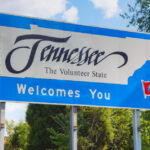The Oregon Court of Appeals held that a deceased veteran’s benefits could be seized by the state as reimbursement of the costs of his care at the Oregon State Hospital (OSH).
Deane Preston Cloud was a disabled veteran who received full disability benefits from the United States Veterans Administration (VA). Cloud was found guilty except for insanity of a felony offense and was committed to OSH. He remained confined there between 2006 and 2010.
Cloud died in 2011 with approximately $121,000 in veterans’ benefits in savings.
Cloud’s will directed that Lynda S. Cue serve as personal representative of his estate. Cloud left the residue of his estate to her. Cue was appointed personal representative when Cloud’s will entered probate.
Oregon’s “pay to stay” law authorizes the State to seek reimbursement of incarceration costs from prisoners and OSH patients. ORS 179.620 provides that a decedent’s estate “shall be liable for any unpaid cost of care” in a prison or OSH.
Pursuant to that provision, the Oregon Health Authority (OHA) submitted a claim in the probate proceeding, seeking reimbursement of $666,187.40 for the cost of Cloud’s care. Cue disallowed that claim and OHA filed suit.
Under 38 USC § 5301(a)(1), veteran’s benefits are “exempt from the claim of creditors, and shall not be liable to attachment, levy, or seizure by any legal or equitable process whatever.” However, 38 USC § 5502(a)(1) and 38 CFR § 13.71 authorize the payment of veterans’ benefits to a state hospital for the cost of a veteran’s institutional care.
Cue and OHA filed cross-motions for summary judgment. Cue argued that Cloud’s benefits were exempt under Section 5301(a)(1). OHA argued that “section 5301(a)(1) does not apply to state institutions seeking to recover for the costs of care provided to veterans generally, and especially not to claims seeking to recover such costs after the veteran’s death.”
The trial court granted summary judgment to OHA, concluding “that section 5301(a)(1) does not preclude OHA’s claim for reimbursement.”
The Oregon Court of Appeals affirmed, finding that “the question presented… is a narrow one: whether the federal veterans’ benefits exemption in 38 USC section 5301(a)(1) applies to a beneficiary’s assets after the death of the beneficiary. “ The court noted that no Oregon court had ever addressed the issue but several decisions from other jurisdictions had. See: In re Estate of McPherson, 170 Wash App 411,412, 283 P3d 1135-36 (2012); State v. Monaco, 81 NJ Super 448,451,195 A2d 910, 912 (1963); In re Pierce’s Estate, 492 Pa 10,12, 421 1065,1066 (1980); State ex rel Eastern State Hospital v. Beard, 600 P2d 324 (Okla 1979); State Dept of Public Welfare v. Wendt, 94 Ohio App 440,450-51,116 NE 2d 30,36 (1953); In re Todd’s Estate, 243 Iowa 930, 54 NW2d 521 (1952); and Matter of Vary’s Estate, 401 Mich 340, 350,258 NW 2d 11, 15(1977).
Finding those cases persuasive, the Court followed them in concluding “that, where a beneficiary of veterans’ benefits has died without leaving a spouse or any dependents, the purpose of the exemption in section 5301(a)(1)–to provide for the well-being of veterans and their families–no longer applies.”
In reaching that conclusion, the Court rejected Cue’s reliance on two federal decisions to the contrary, concluding that those cases “involved living beneficiaries,” so the question before the court was unanswered by those decisions.
The Court ultimately found that “allowing recovery under such circumstances is consonant with the goals of the veterans’ benefits statute, and ensures that funds allocated for the care and maintenance of veterans are, in fact, used for that purpose.” Therefore, the Court concluded “that 38 USC section 5301(a)(1) does not preclude OHA from seeking reimbursement for the past cost of Cloud’s maintenance and care from the veterans’ benefits in Cloud’s estate.”
See: Oregon Health Authority v. Cue, 286 Or App 218, P3d(Or App. 2017).

![veteran-benefits-in-Oregon[1]](https://rucci.law/wp-content/uploads/2023/12/veteran-benefits-in-Oregon1.jpg)

